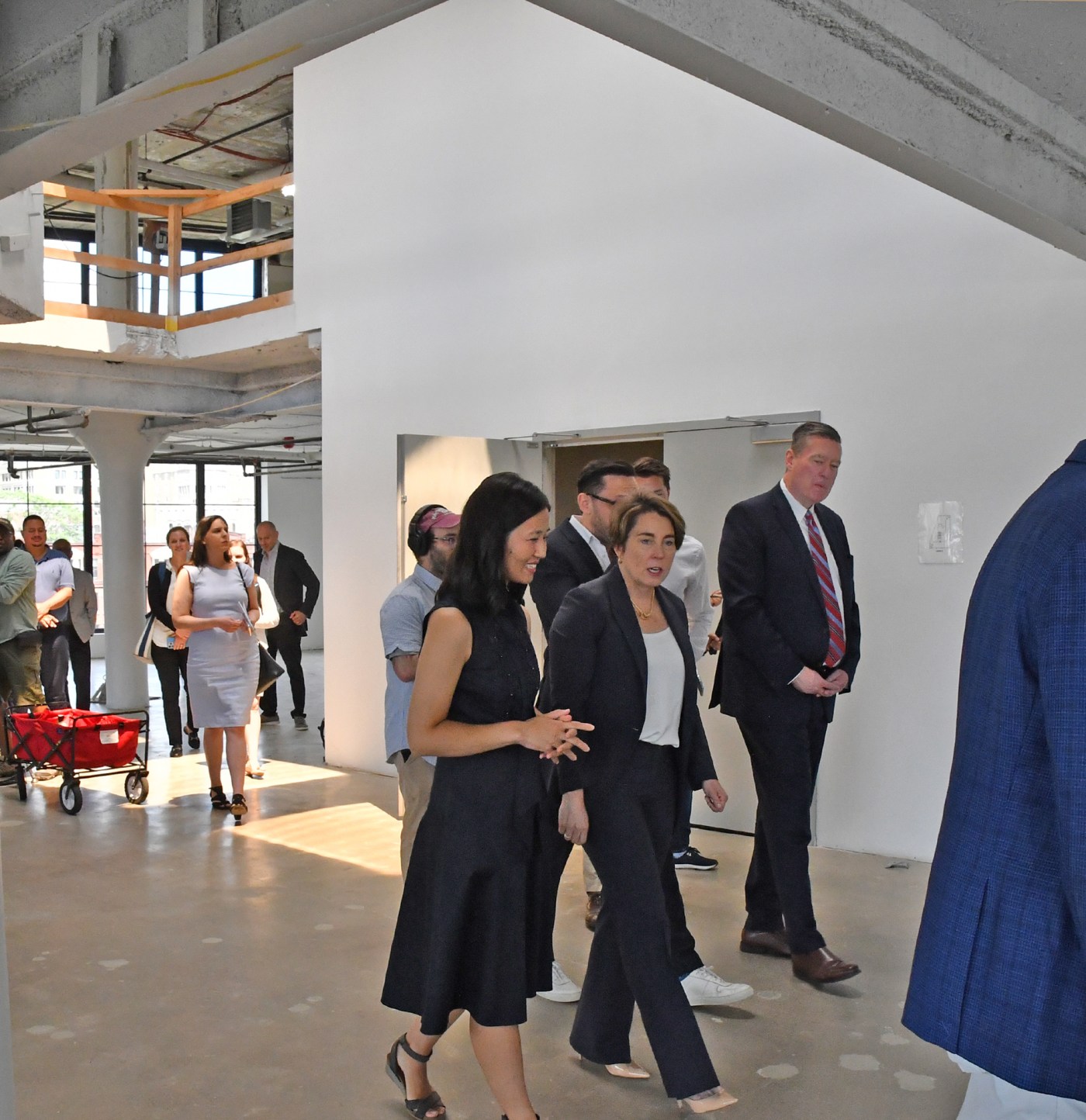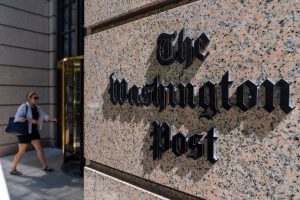
Boston’s downtown office to residential conversion program gets $15M state boost
A City of Boston program that aims to incentivize the conversion of unused office space in the downtown into new housing units received a $15 million boost from the state, the mayor and governor announced at a joint event Monday.
The Healey administration’s investment will fund up to $215,000 per affordable unit, with a cap of $4 million per project, money that the mayor says will allow for a year-and-half extension of the city’s Office to Residential Conversion Program. That means the application deadline moves from the end of this month, where it was originally set, to the end of 2025.
In her remarks, delivered inside 95 Berkeley, a roughly 80,000 square-foot, six-story office building in the South End slated for 100 new housing units, Mayor Michelle Wu spoke about how the pilot program launched last fall builds on her administration’s focus of making Boston a “home for everyone.”
“In order for our residents to be able to enjoy all the benefits our city has to offer,” Wu said, “we must address our housing crisis in Boston, and across the region and commonwealth. We need more homes in more neighborhoods at prices people can afford.”
The mayor spoke of how the city program has generated more interest than expected from local developers, while Gov. Maura Healey mentioned that the concept is drawing interest from cities across the country, citing the “advent of work from home and hybrid work situations”
Since the program’s launch, the city has received nine applications that would create 412 housing units across 13 buildings and convert 403,000 square feet of office space to residential space, which the mayor’s office said exceeds city goals.
Two of those applications have been approved by the Boston Planning and Development Agency board, and construction will begin later this summer.
The mayor said the $15 million state investment will “go towards lowering upfront costs” and bringing more office-to-housing conversion projects online, a number that her administration expects will range from 300 to 500 additional units.
Developers receive a payment in lieu of taxes, or PILOT, incentive for participation in the program — which the mayor’s office said is aimed at both increasing the city’s downtown housing stock, and responding to post-pandemic economic challenges of vacant office space by bringing more people with spending power to the area, a concept it dubbed “downtown activation.”
Perhaps responding to criticism her administration has faced around a perception that it is not business-friendly — which ramped up with a plan to increase commercial tax rates that is pending on Beacon Hill — Wu corralled her housing and planning chiefs, Sheila Dillon and Arthur Jemison, after the day’s press conference, to clarify that the office-to-conversion program will not result a loss of the city’s commercial character.
Related Articles
Seaport convention center could carry Thomas Menino’s name under House proposal
Boston Mayor Wu: ‘No plans’ to return migrant, homeless shelter to addiction outreach amid Mass and Cass spike
Two arrested, 30 sidelined, some with heat stroke, at Boston Celtics victory parade that drew 1M
‘Time for phase two:’ South End residents call for help with extended Mass and Cass crisis
The tents are gone, but the crowds and drug use are back at Mass & Cass
Projects will aim to preserve building exteriors, Dillon said. Jemison insisted that while hundreds of new housing units will be created in buildings that traditionally featured commercial tenants, the number of conversions is not “overwhelming” and Boston will “always want” to be a “commercial hub.”
While drawing concerns in some circles, the city program has the support of the Healey administration, with the governor stating her commitment to “support municipalities in their efforts to convert underutilized office space into housing, which is a critical tool for increasing housing availability and lowering costs.”
The state’s Housing and Livable Communities Secretary Ed Augustus added that, in looking across the commonwealth, the administration realized that it “can’t fill all these old office spaces with desk jobs, but what we can put in them is people.”
Instead of leaving the city, Augustus said, those people will “provide feet on the streets, customers for local businesses, vibrancy for the streets and sidewalks and neighborhoods throughout the city of Boston” and “across Massachusetts.”


